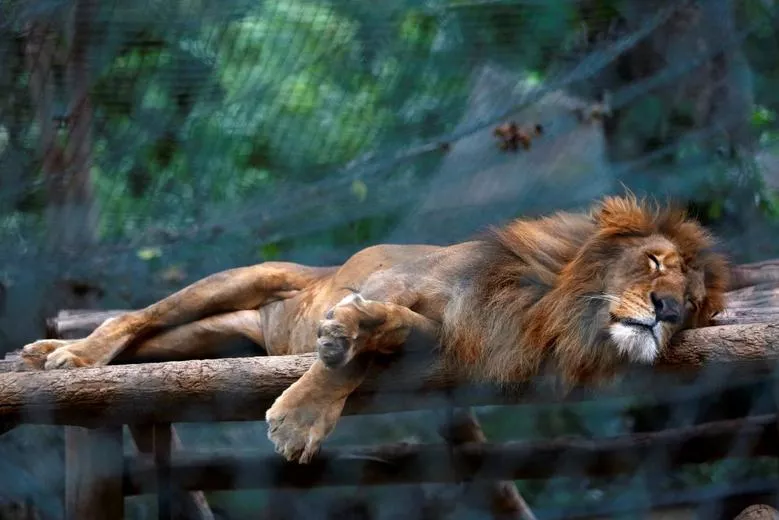Zoonotic tendency: Coronavirus threat worries Karachi Zoo
Local zoo management declares high alert upon news of Covid-19’s cross-species transmission among big cats
KARACHI: After infecting millions of people worldwide, the deadly contagion has now turned towards animals; sending a wave of concern among researchers about the novel coronavirus’s newfound potential. Until a few months ago, it was believed with a sense of reassurance that the virus, although highly contagious, cannot be transmitted from humans to animals and vice versa. However, the recent diagnosis of Covid-19 in eight big cats at the Bronx Zoo in New York City, has landed experts in a vexing debate about how the contagion can now potentially transmit to domesticated cats from infected people and vice versa.Concerns at Karachi Zoo
In view of the escalating situation, a high alert has also been issued for the Karachi Zoo, in that all zoo staff will now be required to undergo a thorough medical examination before being granted entry into the zoo premises. In addition to that, the alert also prohibits entry of all unrelated persons including police and rangers while making it compulsory upon the authorised staff to use masks, sanitizers and gloves while entering the park.
A total 150 staff and workers including doctors and dispensers are deployed to take care of 840 animals in Karachi Zoo, counting varieties of puma, white lion, elephant, snake, turtle, crocodile, zebra and various primates. The workers are responsible for providing animals with food, care, vaccinations and treatment in case of illness.
Every day, thousands of people from all over the province, visit the Karachi Zoo for sightseeing and entertainment. Due to the lockdown, however, the zoo hasn’t been seeing any visitor footfall for the past month-and-a-half, leaving the animal menagerie to relax and enjoy a few moments of privacy.
Spanish cat tests positive for coronavirus
Precautionary measures
According to Karachi Zoo Director Kanwar Ayub, the first Malayan tiger at the New York Zoo to contract the disease, was said to be infected with Covid-19 after eating meat handled by the zoo staff.
“Hence, I have instructed all our animal feeders to thoroughly wash all food items with water before feeding them to the animals. The staff has also been directed to maintain distance from the animals and to wear facemasks and special gloves whenever any handling or close contact is required. In addition to that, as a precautionary measure, the zoo has been declared a no-go area and all forms of activities at the zoo have been halted. Even police and rangers have been banned from entering the facility.”
Following the news from Bronx Zoo on April 4, Karachi Mayor Wasim Akhtar had called Ayub for a meeting that night and expressed his concern over the risk of Covid-19’s spread in animals. The director was then asked to take immediate security measures to ensure the health and safety of animals and humans associated with the zoo. The next day, an antibiotic-spray was administered throughout the zoo with the support of a local NGO, while all animal cages were carefully washed to rid them of germs and bacteria.
While talking to The Express Tribune, zoo director Kanwar Ayub also shared that so far all animals at the Karachi Zoo are in good health.
“That being said, there is also no need to relocate the animals for treatment in case of any emergency as no proper vaccine for the virus has been discovered. However, in the event that an animal does somehow contract the virus in captivity, we have doctors and all required facilities available at the zoo for its treatment,” expressed Ayub.
“Moreover, the our administration has taken the lockdown period as an opportunity to rebuild and renovate various parts of the zoo—including the big cat cages—with the hope that we will welcome the citizens to a new and improved park once the zoo reopens,” he asserted.


COMMENTS
Comments are moderated and generally will be posted if they are on-topic and not abusive.
For more information, please see our Comments FAQ